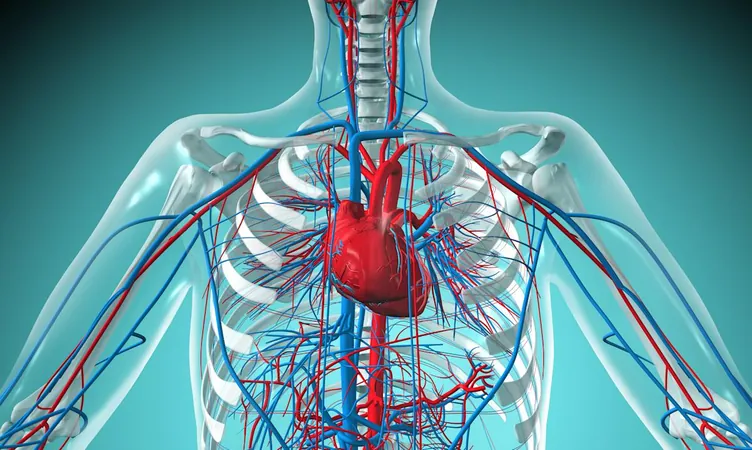
Are Your Organs Aging Faster Than You? New Research Reveals Shocking Connections to Future Health Risks!
2025-03-16
Author: Wei
Introduction
Have you ever wondered about the true age of your organs? Surprisingly, recent research shows that the biological age of your organs may not align with your chronological age and could be a crucial indicator of your future health risks, including life-threatening conditions such as cancer, dementia, and heart disease.
Groundbreaking Study
A groundbreaking study, published in the prestigious Lancet Digital Health, draws on extensive data from the Whitehall II study, one of the UK's most comprehensive studies on aging. This research has been following over 10,000 British adults for more than 35 years, making it a goldmine of insights into the aging process. Between 1997 and 1999, participants aged between 45 and 69 provided blood plasma samples, which have now been re-evaluated in light of new findings.
Key Findings
The recent analysis focused on 6,235 Whitehall participants, aged 65 to 89, delving deeply into their blood samples to assess the biological ages of nine key organs: the heart, blood vessels, liver, immune system, pancreas, kidneys, lungs, intestines, and brain. The study aimed to uncover the disparity between individuals' chronological age and their organs' biological age.
Staggering Results
What did they find? The results were staggering. Organs age differently in different individuals, and those with "fast-aging" organs were at a significantly heightened risk of developing 30 out of 45 age-related diseases examined in the study. For instance, accelerated aging of the lungs correlated with a higher likelihood of respiratory diseases over the following two decades. Strikingly, the kidneys exhibited the most complex relationship; not only was swift aging of the kidneys linked to kidney diseases, but it also showed connections to ailments affecting other organs, such as the liver and pancreas.
Unexpected Connections
Interestingly, while one might expect that dementia would be primarily linked to the biological age of the brain, the research pointed in an unexpected direction. The strongest predictor of dementia risk turned out to be the aging of the immune system, a fascinating revelation that opens new pathways for preventative healthcare.
Implications for Preventative Healthcare
The implications of this study are profound, suggesting the potential for a simple organ-specific blood test that could replace more invasive and complicated diagnostic procedures. According to lead author Mika Kivimaki, a professor at University College London's faculty of brain sciences, these tests could inform individuals whether they need to be more vigilant about certain organs and might serve as an early warning system for specific health risks.
Conclusion
As we continue to learn more about the interplay between organ health and overall wellbeing, this research could reshape how we approach aging and disease prevention. Stay tuned as science uncovers more about the hidden mysteries of our bodies!


 Brasil (PT)
Brasil (PT)
 Canada (EN)
Canada (EN)
 Chile (ES)
Chile (ES)
 Česko (CS)
Česko (CS)
 대한민국 (KO)
대한민국 (KO)
 España (ES)
España (ES)
 France (FR)
France (FR)
 Hong Kong (EN)
Hong Kong (EN)
 Italia (IT)
Italia (IT)
 日本 (JA)
日本 (JA)
 Magyarország (HU)
Magyarország (HU)
 Norge (NO)
Norge (NO)
 Polska (PL)
Polska (PL)
 Schweiz (DE)
Schweiz (DE)
 Singapore (EN)
Singapore (EN)
 Sverige (SV)
Sverige (SV)
 Suomi (FI)
Suomi (FI)
 Türkiye (TR)
Türkiye (TR)
 الإمارات العربية المتحدة (AR)
الإمارات العربية المتحدة (AR)